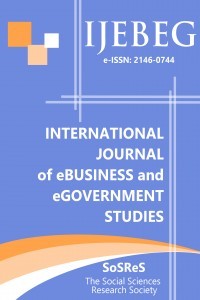TACIT KNOWLEDGE EXTRACTION FOR SOFTWARE REQUIREMENT SPECIFICATION
TACIT KNOWLEDGE EXTRACTION FOR SOFTWARE REQUIREMENT SPECIFICATION
Tacit Knowledge extraction Expert Knowledge, Software Requirement Specification (SRS), Knowledge Engineer (KE),
___
- Gourlay, Stephen (2002), “Tacit knowledge, tacit knowing or behaving?”, Kingston Business
- School, Kingston upon Thames,UK Nonaka, Ikujiro; Takeuchi, Hirotaka (1995), The knowledge creating company: how Japanese companies create the dynamics of innovation, New York: Oxford University Press
- Tagger, Ben, An Enquiry into the Extraction of Tacit Knowledge, http://www.cs.ucl.ac.uk/staff/B.Tagger/FinalIMR.pdf [Accessed 7.01.2011]
- Wikipedia (2011), Requirement Analysis, http://en.wikipedia.org/wiki/Requirements_analysis [Accessed 7.01.2011]
- Epistemics (2003), Knowledge Acquisition, http://www.epistemics.co.uk/Notes/63-0-0.htm [Accessed 7.01.2011]
- Irick, Michael L. (2007), “Managing Tacit Knowledge In Organizations”, Journal of Knowledge
- Management Practice, Vol. 8, No. 3, pp.1-5. Memon, Nasrullah , Knowledge Elicitation – Converting Tacit Knowledge to Explicit, http://www.mip.sdu.dk/~memon/10-2.pdf [Accessed 7.01.2011]
- Usability Body of Knowledge (2007), Card Sorting, http://www.usabilitybok.org/methods/card-sorting [Accessed 12.02.2011]
- Wikipedia (2011),Use case diagram, http://en.wikipedia.org/wiki/Use_case_diagram [Accessed 07.01.2011]
- Institute for Human and Machine Cognition (2006), The Theory Underlying Concept Maps and How to Construct and Use Them, http://cmap.ihmc.us/publications/researchpapers/theorycmaps/theoryunderlyingconceptmaps.htm Accessed 23.02.2011]
- Becerra-Fernandez, et al (2004), Dekai Wu (2007), Knowledge Management www.cs.ust.hk/~dekai/600G/notes/KM_Slides_Ch10.pdf [Accessed 12.02.2011]
- Gravity Freedom (2011), Card Sorting Your Way to an Improved User Experience http://gravityfreedom.com/2007/06/14/card-sorting-your-way-to-an-improved-user-experience/ Accessed 12.02.2011]
- Study Habits (2011), How To Mind Map http://www.study-habits.com/how-to-mind-map [Accessed 12.02.2011]
- Başlangıç: 2009
- Yayıncı: Sosyal Bilimler Araştırmaları Derneği
A CASE STUDY FOR TURKEY: A SECURE PAPER-BASED ELECTRONIC VOTING SYSTEM
Oktay Adalier, Fatih Birinci, Süleyman KARDAŞ, Mehmet Sabır KİRAZ
Muhajir Kachwamba, Iddi Makombe
Karim AL-YAFI, Habin LEE, Afshin MANSOURI
REFERENDUMS AND E-VOTING IN TURKEY
Rabia Bahar ÜSTE, Berrin GÜZEL
Ahmet Ozturk, Koray Umit, Ihsan Tolga Medeni, Burak Ucuncu, Meryem Caylan, Firat Akba, Tunc Durmus Medeni
TACIT KNOWLEDGE EXTRACTION FOR SOFTWARE REQUIREMENT SPECIFICATION
Serbülent ÜNSAL, Meryem AYAS, Tunc Durmuş MEDENİ
Burcu Bastabak, Tunc Durmus Medeni
GLOBAL PRODUCTION NETWORKS and KNOWLEDGE TRANSFER MECHANISIMS
Cansu DURUKAN, M.Teoman PAMUKÇU
THE MANAGEMENT'S ROLE IN THE SUCCESS OF THE INTRODUCTION OF MANAGEMENT INFORMATION SYSTEMS
Krisztián Kisari, József Csernák, Zoltán Zörög, István Takács
